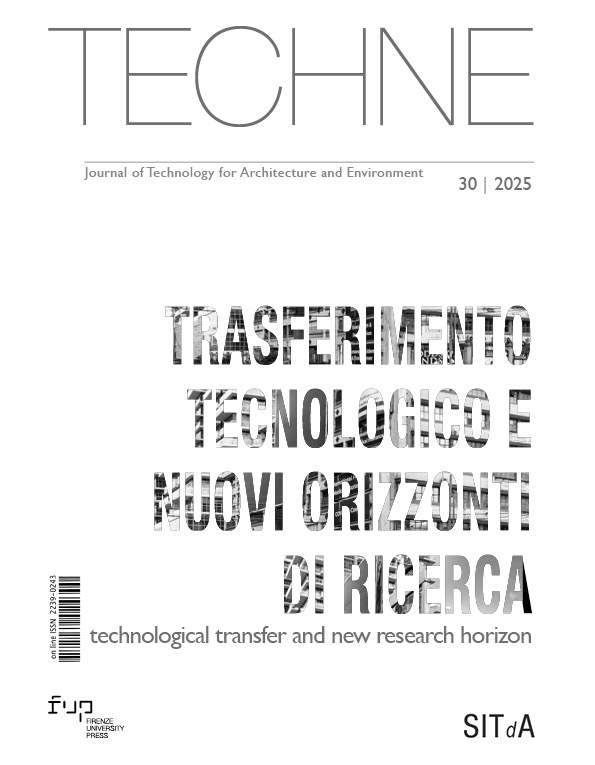Published 2025-11-07
Keywords
- Technological innovation,
- Problem solving,
- Social-Ecological-Technological-Systems
How to Cite
Copyright (c) 2025 Mario Losasso

This work is licensed under a Creative Commons Attribution 4.0 International License.
Abstract
In a scenario that frames the relationship between Technology and Society according to multiple points of view, technology transfer is distinguished by fostering permeability between sectors and the ability to adapt several systems from other productive areas to a “target” one. Further radical innovations are developed starting with the transfer of basic technologies and materials from outside sectors to a given one. Production processes and products are significantly transformed from their original asset through adaptation and reworking actions in which the trace of technology, in its original “configuration”, is lost. Research today is measured on the real planes of its applicability in such contexts as problem solving, risk prevention, and scenario formulation. In contexts where science and technology either reverse or integrate their roles and effects, the future of research and technology transfer looks uncertain, in an increasingly performative world where the value of critical thinking and measurability of research outcomes becomes significant.
Downloads
References
- Grimm, N., Grove, J.M., Pickett, S. and Redman, C., (2000), “Integrated Approach to Long-Term Studies of Ecological Urban Systems”, BioScience, Vol. 50, n. 7. DOI: https://doi.org/10.1641/0006-3568(2000)050[0571:IATLTO]2.0.CO;2
- Heidegger, M., Die Frage nach der Technik (1953), in Vorträge und Aufsätze, Neske, Pfullingen 1957, trad. it. “La questione della tecnica”, (1976), in Heidegger, M., Saggi e discorsi, Mursia, Milano.
- Losasso, M., Attaianese, E., Rigillo, M., (Eds), (2024), Innovazioni convergenti per lo spazio abitabile, CLEAN, Napoli.
- Vittoria, E. (1988), “Le tecnologie devianti dell’Architettura”, in: Fabbri, M. e Pastore, D., (Eds), Architetture per il terzo millennio. Una seconda rivoluzione urbana, Fondazione Adriano Olivetti, Roma.






